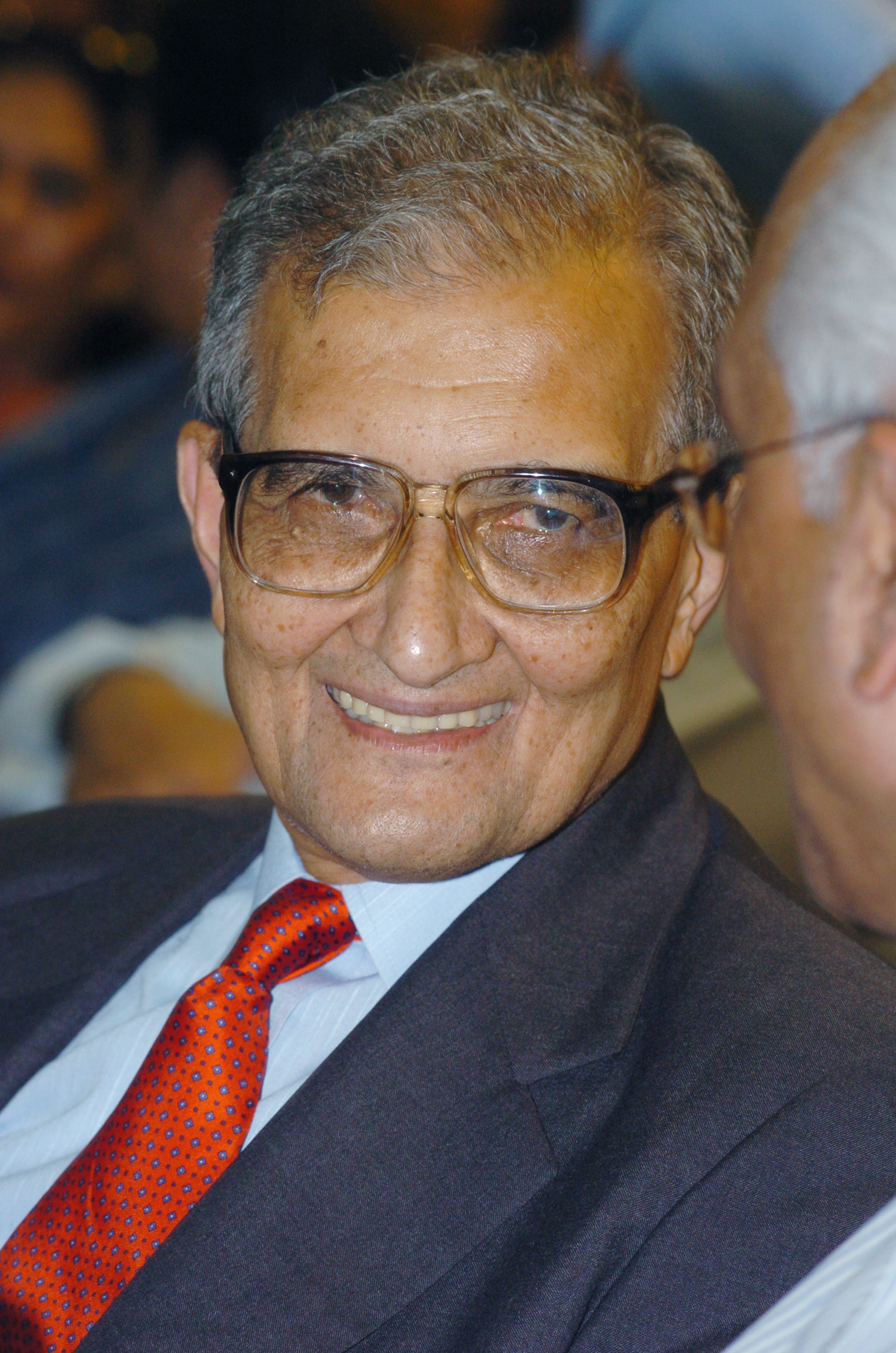Amartya Sen: Frases em inglês
Fonte: The Argumentative Indian: Writings on Indian History, Culture and Identity
2004
Stephen A. Marglin, Richard Parker, Amartya Sen, and Benjamin M. Friedman, “John Kenneth Galbraith”, Harvard Gazette (February 7, 2008)
2000s
"An insight into the purpose of prosperity", Financial Times (September 20, 2004)
2000s, "An insight into the purpose of prosperity," 2004
1990s, Foreword to The Passions and the Interests (1996)
Amartya Sen, quoted in Jonathan Steele, " Last of the old-style liberals http://www.theguardian.com/education/2002/apr/06/socialsciences.highereducation", The Guardian (2002)
2000s
Amartya Sen, "Ten theses on globalization." New Perspectives Quarterly 18.4 (2001): 9-9.
2000s
Amartya Sen, "Dr. BR Ambedkar: As an Economist." International Journal of Humanities and Social Science Invention 2.3 (2013): 24-27.
2010s
1990s, Foreword to The Passions and the Interests (1996)
“Values and justice”, Journal of Economic Methodology, Vol. 19, No. 2, June 2012, 101–108
2010s, “Values and Justice”, 2012
1990s, Foreword to The Passions and the Interests (1996)
Amartya Sen, " The economist manifesto http://www.newstatesman.com/ideas/2010/04/smith-market-essay-sentiments", New Statesman (23 April 2010)
2010s
Amartya Sen, "What Happened to Europe?", New Republic (August 2, 2012)
2010s
“Values and justice”, Journal of Economic Methodology, Vol. 19, No. 2, June 2012, 101–108
2010s, “Values and Justice”, 2012
1990s, Foreword to The Passions and the Interests (1996)
Stephen A. Marglin, Richard Parker, Amartya Sen, and Benjamin M. Friedman, “John Kenneth Galbraith”, Harvard Gazette (February 7, 2008)
2000s
“Values and justice”, Journal of Economic Methodology, Vol. 19, No. 2, June 2012, 101–108
2010s, “Values and Justice”, 2012
"An insight into the purpose of prosperity", Financial Times (September 20, 2004)
2000s, "An insight into the purpose of prosperity," 2004
Subramanian Swamy, "Sen 'lost Indian-ness' after dumping Bengali wife for foreign brides: Swamy" http://www.business-standard.com/article/politics/sen-lost-indian-ness-after-dumping-bengali-wife-for-foreign-brides-swamy-113072300490_1.html#.Ue8bEFEgKO4.twitter, Business Standard (23 July 2013)
Amartya Sen, Reason before Identitiy: The Romanes Lecture for 1998, Oxford University Press, 1999. p. 20
1990s
Amartya Sen, "Human Rights and Asian Values" Sixteenth Annual Morgenthau Memorial Lecture on Ethics and Foreign Policy, May 25, 1997; Republished in: Tibor R. Machan (2013), Business Ethics in the Global Market. p. 69
1990s
Dr. Bharat Gupt, India Facts, http://indiafacts.org/what-ails-amartya-sen
quoted in Andrew Balls, "Donors urged to focus more on disability link", Financial Times (December 2, 2004)
2000s
Chap. 3 : Freedom and Consequences
1990s, On Ethics and Economics (1991)
weakening its behavioural foundations
Chap. 2 : Economic Judgements and Moral Philosophy
1990s, On Ethics and Economics (1991)
